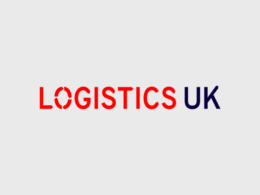
As the nation prepares for the closest general election in living memory, Andy Connor, Managing Director of UK operations at Hellmann Worldwide Logistics – one of the world’s largest privately owned logistics networks – takes a look at what can be done to support growth in the sector.
Successive governments have promised the earth when it comes to the UK’s transport infrastructure, only to deliver very little. Real investment is required to improve the UK logistics network. We have become over-reliant on our ageing roads, and despite numerous investment promises and an 80% increase in road traffic since 1980, capacity has been increased by just 10%.
We can’t lay the blame solely with politicians. Despite the importance of our sector to the wider economy, logistics often goes overlooked. Because of its strictly B2B function, it’s really only those who need logistics that know of its existence. This lack of public engagement with the industry lies at the root of a number of challenges threatening future growth.
Perhaps our most pressing challenge – before road or rail improvements – is a shortage of new blood coming through the ranks. There’s lack of interest in logistics from the next generation, and that’s come at a strange time, especially when you consider the incredible innovation that’s happening across our sector today. Logistics is changing, with companies increasingly incorporating technology; it’s a really exciting time to get involved.
At Hellmann, our transport network spans Europe from East to West. Our continental colleagues view logistics as a rewarding career choice, and are often perplexed when we mention the lack of young people actively pursuing a career in the sector back home. We need a culture change to correct false perceptions about what day-to-day logistics actually involves.
The Office for National Statistics (ONS) has just announced that unemployment has reached a seven-year low of just 5.6%, while the opposition parties have argued that the majority of these newly created jobs are on low-paid, zero-hour contracts.
What remains unclear is why – when the need for logistics professionals is so blatant – more young Brits aren’t pursuing a career in the sector? Logistics can now provide a solid career path and a world of scope for innovation. Yet a sizeable proportion of the workforce must, at least for now, be found elsewhere.
Which brings us to another key issue at this election – immigration. It’s a factor that impacts logistics in a number of ways. For starters, with less British-born workers considering logistics as a career, migrants are playing a crucial role in warehouse operations, supply chain management and customer services. Without the free movement of labour, the recruitment process becomes increasingly difficult.
Secondly, as our population grows, the need for investment in our infrastructure follows suit. Experts predict that by 2050, Britain will become the most populous European nation with 72million people. More people mean more consumers, which in turn, will place increased demand on the UK logistics network. More people also mean more drivers, and with congestion already costing the British economy an estimated £14billion a year, the issue of population is undoubtedly one that will impact logistics. This is when investment in our waning road infrastructure and new alternatives become particularly important.
Ideas like HS2 are positive, particularly with the promised expansion of the line to bridge the northern cities of Liverpool, Leeds and Manchester. Even if the project offers a passenger-only solution and will not benefit logistics infrastructure, its development has displayed a willingness to engage with and address our faltering transport system.
However, with the project often being used as a political football, there must be cross-party agreement that our transport network requires investment. Uncertainty and inconsistency is bad for business, and with another hung parliament looking likely, the political landscape of the UK has reached a new level of ambiguity.
Regardless of who comes to power, to continue the recovery, the government must begin to address key issues facing our sector. Cross-party agreement on projects like HS2 would be a great place to start, but all parties from across the UK’s broadening political spectrum should begin to recognise the logistics sector’s essential status and the need for investment in our transport infrastructure.
For more information on Hellmann Worldwide Logistics, please visit http://www.hellmann.net/ and to follow Hellmann on Twitter go to www.twitter.com/HellmannUK.












